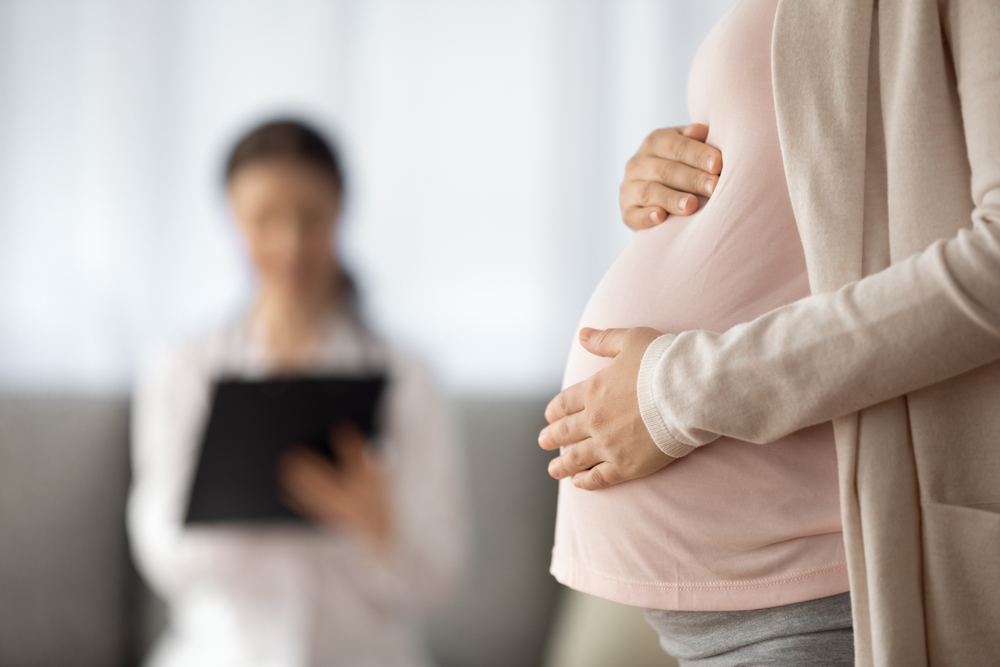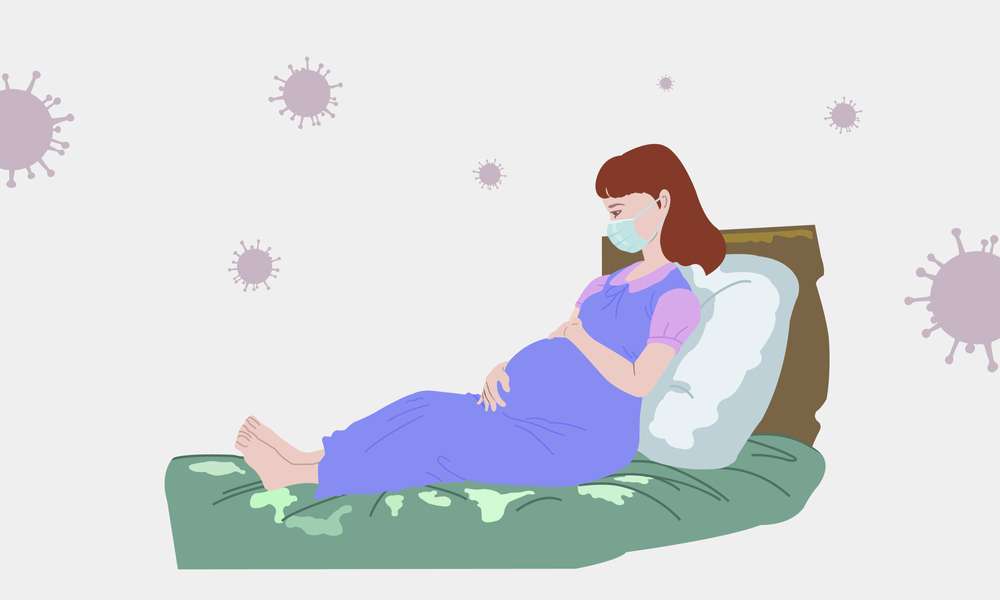Postpartum Psychosis
What is Postpartum Psychosis?
Postpartum psychosis is a rare but serious mental illness that affects some women after childbirth. It is estimated to occur in about 1 to 2 in 1,000 births. This condition usually develops within the first two weeks after birth and requires immediate medical attention. In this article we look at the causes, symptoms and treatment options for postpartm psychosis.
Understanding Postpartum Psychosis:
Postpartum psychosis is a dangerous mental disease characterized by the abrupt emergence of psychotic symptoms in new mothers.Unlike postpartum depression, which is more common and generally less severe, postpartm psychosis requires urgent medical intervention.Distinguishing these two diseases is extremely important because the treatment methods differ greatly.
Causes of Postpartum Psychosis
The exact cause of postpartm psychosis remains unclear, but several factors may influence its development. These include hormonal changes that occur during pregnancy and after birth, a history of mental illness in the family or household, lack of sleep, and high levels of stress. In addition, previous experience of postpartum psychosis increases the risk of recurrence in subsequent pregnancies.
Recognizing the symptoms:
Symptoms of postpartm psychosis can vary from person to person. To ensure the well-being of the affected person and their child, it is important that these symptoms are recognized and treated quickly. Some symptoms of postpartm psychosis include:
- Hallucinations: Women may experience hallucinations, usually auditory ones, in which they hear voices or noises that are not actually there.
- Delusions: Delusions may occur, such as believing that the child is possessed or that harm will come to him or the child.
- Confusion and disorientation: There may be a feeling of disconnection from reality or confusion about time, place, or surroundings.
- Mood instability: Extreme mood swings may be observed, ranging from mania to depression.
- Anxiety and restlessness: Inability to relax, walk, or increase physical activity may be observed.
Seeking treatment:
If you or someone you know is experiencing symptoms of postpartum psychosis, it is extremely important to seek medical attention immediately. Because of the potential risks, hospitalization is often necessary to ensure the safety of mother and child.Commonly used treatment options for postpartm psychosis include:
- Medications: Antipsychotics are often prescribed to relieve psychotic symptoms. Mood stabilizers can also be used to regulate mood swings.
- Psychotherapy: Individual therapy sessions can provide individuals and their families with valuable support, education, and coping strategies.
- Electroconvulsive therapy (ECT): In severe cases where other treatments are not effective, ECT may be considered. This procedure involves sending an electrical current through the brain to trigger a controlled seizure, which is believed to have a positive effect on the symptoms of psychosis.
The Importance of Support:
Postpartm psychosis not only affects the woman affected, but also has significant consequences for her family and the entire care environment.Providing a supportive and stimulating environment is critical to the well-being of the mother and her newborn. The Importance of Support Postpartum psychosis not only affects the woman affected, but also has significant consequences for her family and the entire care environment.Providing a supportive and stimulating environment is critical to the well-being of the mother and her newborn. Here are some ways to offer help:
- Build a support network: Encourage family members and close friends to offer help and support during this difficult time.
- Get Educated: Learn more about postpartum psychosis to better understand its symptoms and effects. This will help you re
- spond effectively and show empathy. Provides practical assistance: help with household chores, meal preparation, or caring for older children so the mother can focus on healing and bonding with the newborn.
- Promote open communication: Encourage open and honest conversations about feelings and concerns with the affected person and their health care providers.
Postpartum psychosis Symptoms:
Postpartum psychosis is a rare and serious mental health problem that affects a small percentage of women after childbirth.Recognizing the symptoms and understanding the causes of postpartum psychosis is extremely important to ensure rapid intervention and support for those affected. In this article, we examine the symptoms of postpartm psychosis and the possible factors that contribute to its onset. symptoms of postpartum psychosis:
- Mood Disorders: Women with postpartm psychosis may experience extreme mood swings, ranging from excitement to deep sadness or anxiety. These severe mood swings can be disruptive and sudden.
- Rapid mood swings: A hallmark of postpartum psychosis is rapid changes between different emotional states, which can occur within hours or even minutes.
- Increased irritability: Some women with postpartm psychosis may experience excessive irritability or increased sensitivity to external stimuli, making it difficult to cope with daily activities and triggers.
- Delusions : During postpartum psychosis, strongly held false beliefs or ideas may emerge, even if they contradict the evidence. These delusions may concern the child’s safety, personal harm, or impressive abilities.
- Disorganized thoughts and speech: Postpartum psychosis can disrupt a woman’s thought processes, resulting in confused thought patterns and rapid speech that may be difficult for others to imitate. Tangential thinking: Difficulty connecting thoughts or a tendency to wander off topic and engage in unrelated conversations are common symptoms of postpartum psychosis.
- Racing Thoughts: Women with postpartum psychosis may feel overwhelmed by racing thoughts, making it difficult to concentrate on certain tasks or conversations.
“Understanding Postpartum Depression: Symptoms, Causes, and Treatment”
What causes postpartum psychosis?
The exact causes of postpartm psychosis remain unclear, but several potential factors that could contribute to its development have been identified.
- Hormonal Fluctuations: Hormonal changes that occur during pregnancy and childbirth have long been linked to mood disorders. Fluctuations in estrogen and progesterone levels, as well as other hormonal imbalances, may play a role Genetic
- Predisposition: There is evidence that people with a family history of postpartum psychosis or other mental disorders are at higher risk of developing this condition. Genetic factors may potentially influence susceptibility to postpartum psychosis.
- Psychological Stressors: For some women, the transition to motherhood can be overwhelming and emotionally difficult. Stressful life events, limited social support, lack of sleep, and difficulty adjusting to the new responsibilities of caring for a newborn can contribute to the onset of postpartum psychosis.
- History of psychiatric illness: Women with a history of bipolar disorder, schizophrenia, or other mental health problems are at increased risk of developing postpartum psychosis. Hormonal and physiological changes that occur after birth can worsen pre-existing weaknesses.
- Sleep Disorders: Sleep disorders are common in the postpartum period and inadequate sleep has been linked to the development of psychiatric disorders. Lack of sleep and sleep disorders can contribute to the symptoms of postpartum psychosis.
- Immunological factors: New research suggests that dysregulation of the immune system, particularly inflammatory processes, may be involved in the pathophysiology of postpartum psychosis. Further research is needed to fully understand the immunological components of the disease.
- Remember that postpartum psychosis is a serious illness that requires immediate medical attention. Seek professional help right away if you or someone you know is suffering symptoms of postpartum psychosis. Early intervention can ensure the well-being of mother and child, enable rapid recovery and long-term mental health stability. Remember that you are not alone and that seeking support is a strength.
Conclusion:
Postpartum psychosis is a serious mental illness that requires rapid intervention and appropriate treatment.By recognizing the symptoms and seeking immediate medical attention, those affected can recover and maintain a healthy bond with their newborn. It is critical to create a supportive environment that recognizes the challenges of postpartum psychosis and provides the necessary support to ensure the well-being and recovery of mother and child.



